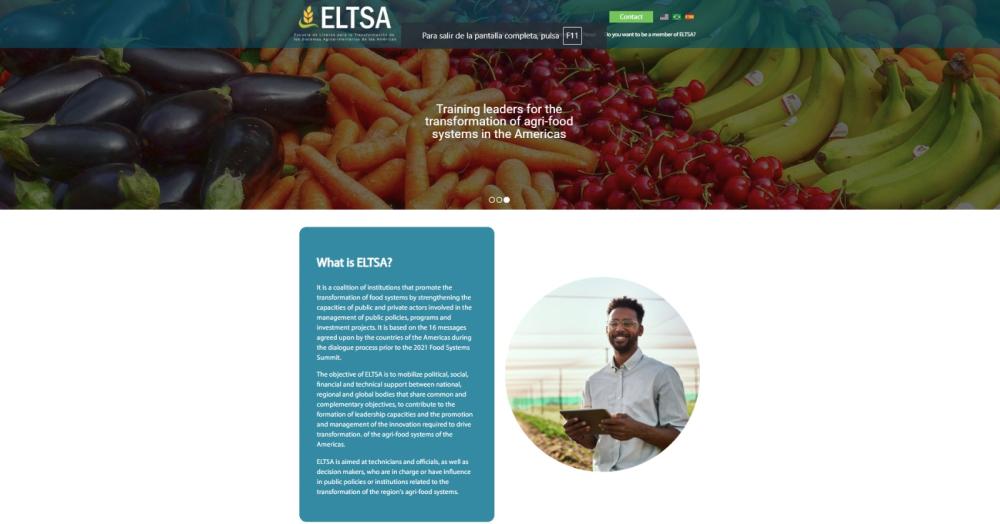The course will be available on the web platform of the Leadership School for the Transformation of Agrifood Systems of the Americas from 3 June to 30 November 2024.

San José, 3 June 2024 (IICA). The Inter-American Institute for Cooperation on Agriculture (IICA) launched a free, introductory virtual course on agri-food systems, challenges, and public policies for their strengthening and transformation. The aim of this course is to promote significant advances on this topic in the countries of Latin America and the Caribbean (LAC).
The training is directed at decision-makers in the ministries of agriculture and other public institutions in the region, technical experts from agri-food companies and organizations in the agricultural, economic, social, and environmental sectors, technology centers and platforms, as well as researchers, academics, and undergraduate and graduate students.
The course is self-managed, lasts a total of 20 hours, and consists of three learning modules: the functioning of agri-food systems; challenges and foundations for their transformation; and pillars for achieving this transformation.
The course will be available in Spanish from 3 June to 30 November 2024, on the web platform of the Leadership School for the Transformation of Agri-Food Systems of the Americas (ELTSA): https://eltsa.iica.int/.
This school is a coalition, led by IICA, of institutions that promote the transformation of food systems by strengthening the capacities of public and private actors involved in the management of public policies, programs, and investment projects.
Its objective is to mobilize political, social, financial, and technical support among national, regional, and global bodies that share common and complementary goals, with a view to building leadership capacities and for the promotion and management of the innovation required to drive the transformation of the agri-food systems of the Americas.
“At IICA, we are fully convinced that the strengthening, transformation, and so-called transition of agri-food systems will only be possible if we manage to build a new generation of leadership and innovation capacities in public policy and institutional management in the region,” said the Institute’s Director General, Manuel Otero.
ELTSA offers a comprehensive training program that combines theoretical learning with practical experiences and the development of leadership skills in topics such as bioeconomy, innovation, territorial development, climate change, gender and youth, digital agriculture, international trade, and agricultural health and food safety, among others. It also promotes the creation of networks, alliances, and collaboration among participants.
The creation of ELTSA by IICA is a response to the recommendations arising from the Food Systems Summit, convened in 2021 in New York by the United Nations (UN), which positioned food systems and, particularly, agriculture at the highest level as a driver for food security, socioeconomic recovery, and environmental sustainability in the countries.
Through its proposals, the initiative aims to support the countries of the Americas in transforming food systems at the national level, contributing to the achievement of the Sustainable Development Goals (SDGs), especially SDG 2, which focuses on ending hunger, and others related to health, climate change, biodiversity conservation, and responsible consumption and production.
As part of its roadmap, IICA and its partners will work together to attract think tanks, universities, teaching and research institutions, as well as training programs in the areas of interest to the coalition.
Additionally, the Institute intends to expand the training offer with new courses and other resources such as case studies, webinar series, internships and fellowships, field days, and the creation of a financial sustainability structure to maintain and scale-up the initiative, considering the training platform already developed and validated by IICA as seed capital and the training offered by members of the coalition.
More information:
Hugo Chavarría, Manager of the Innovation and Bioeconomy Program of IICA.
hugo.chavarria@iica.int
Marvin Blanco, Sustainable Agribusinesses Specialist of IICA.
marvin.blanco@iica.int











